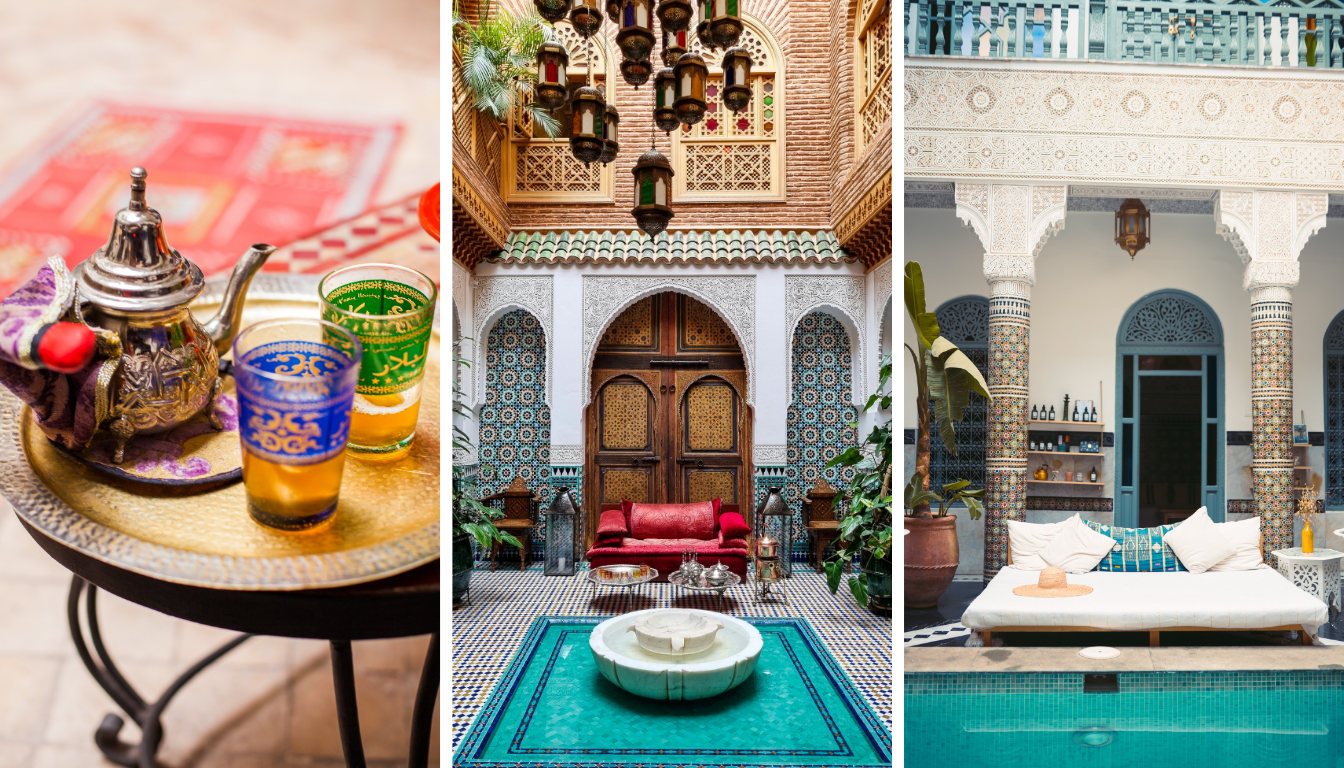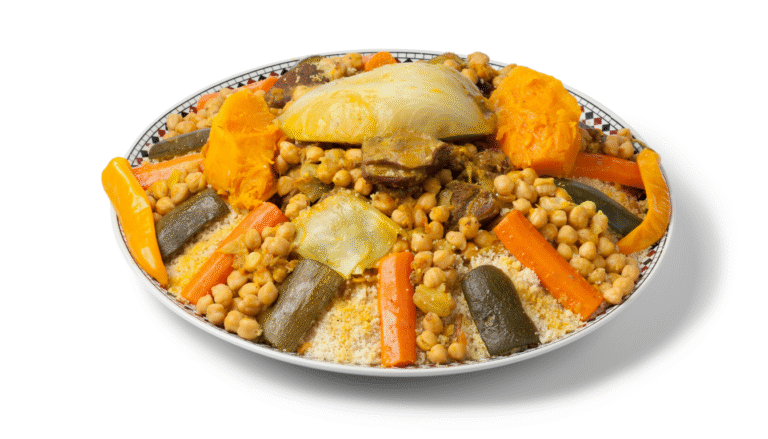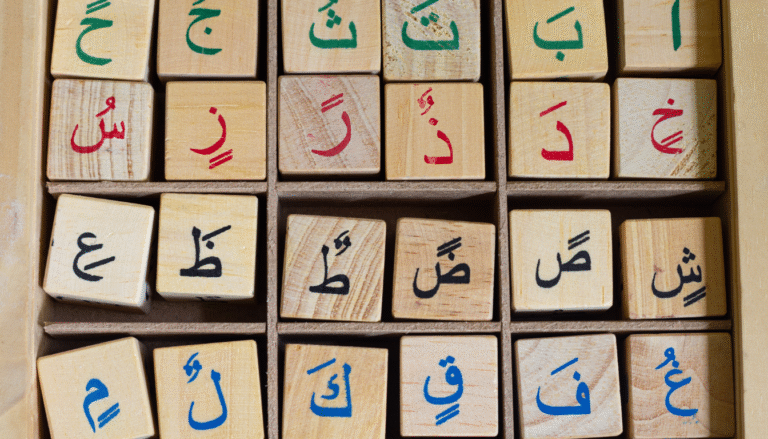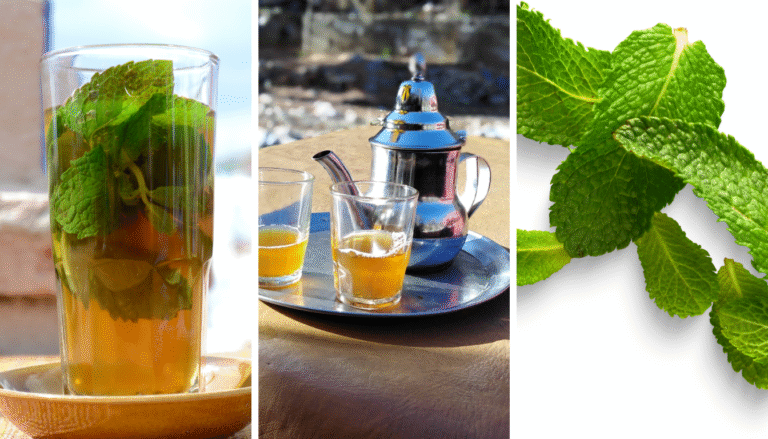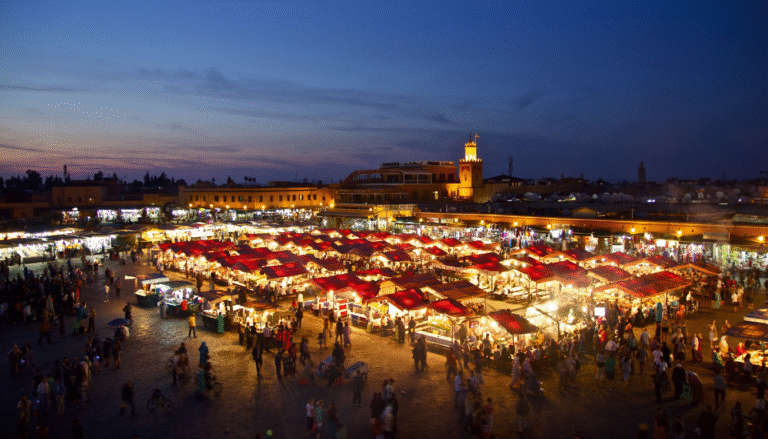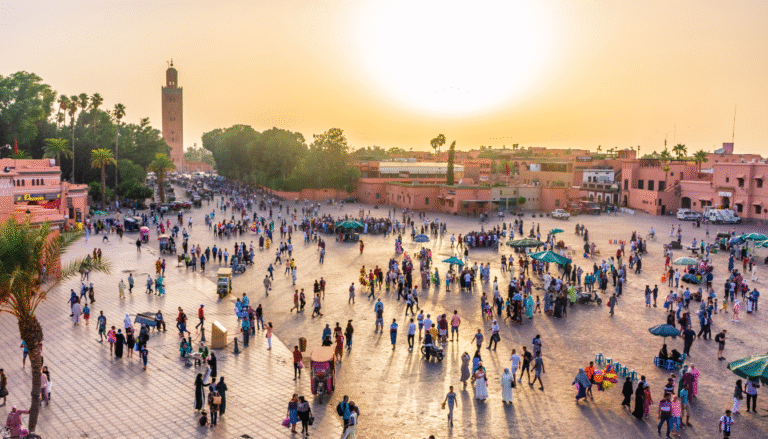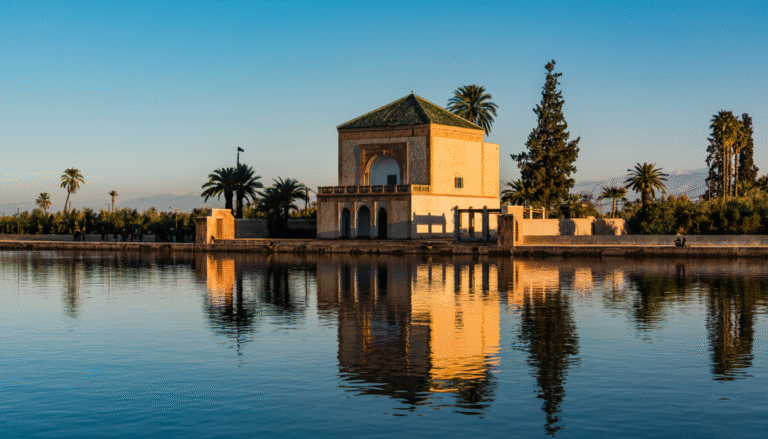Why Moroccan Hospitality Will Surprise You (In the Best Way)
Imagine being welcomed with open arms, feeling like family from the start. In Morocco, this is more than a greeting; it’s a way of life. The country’s rich culture and beautiful landscapes promise an unforgettable experience.
When you enter a traditional riad or a lively marketplace, you’re not just a visitor. You’re a guest in a land known for its cultural exchange. The people’s warmth and generosity will amaze you, making your stay special. Whether you’re exploring lively streets or relaxing in a peaceful oasis, the spirit of moroccan hospitality is always there, making your journey unforgettable.
The Heart of Moroccan Hospitality: An Ancient Tradition
Moroccan culture is deeply rooted in an ancient tradition of hospitality. This tradition goes beyond just welcoming guests. It shows the country’s values, history, and identity.
Understanding the Cultural Significance of “Diyafa”
“Diyafa” captures the essence of Moroccan hospitality. It’s about hosting and its cultural importance. In Morocco, “Diyafa” is seen as a sacred duty, showing generosity, respect, and kindness to guests.
How Religion and History Shaped Welcoming Practices
Moroccan hospitality has been shaped by its religious and historical background. Islamic teachings stress treating guests with kindness and respect. Berber traditions add to the unique customs of hosting.
Islamic Influences on Guest Treatment
Islamic principles have greatly influenced Moroccan hospitality. The Quran and Hadiths guide how to treat guests with generosity and respect. These teachings are key to Moroccan welcoming practices.
Berber Traditions of Protection and Generosity
Berber communities have a long tradition of hospitality. It’s marked by protection and generosity towards guests. This heritage adds to the unique flavor of Moroccan hospitality.
| Aspect | Islamic Influence | Berber Tradition |
|---|---|---|
| Guest Treatment | Emphasis on kindness and respect as guided by the Quran and Hadiths | Strong tradition of protection and generosity |
| Cultural Significance | Hospitality as a means of earning rewards and blessings | Hospitality as a matter of honor and pride |
| Historical Impact | Spread of Islamic values through trade and cultural exchange | Preservation of traditional practices despite external influences |
What Makes Moroccan Hospitality Different From What You Know
Moroccan hospitality is a special mix of Arab, Berber, and Mediterranean traditions. This blend creates a unique cultural identity. It shows in how Moroccans welcome and interact with guests.
The Blend of Arab, Berber, and Mediterranean Influences
Moroccan hospitality brings together different cultures, making its cultural heritage rich and diverse. You can see Arab, Berber, and Mediterranean influences in the country’s architecture, food, and social customs. These elements shape the authentic moroccan guest experience.
The Concept of Baraka (Blessing) in Sharing with Guests
In Moroccan culture, Baraka or blessing is tied to sharing with guests. Moroccans believe that sharing food, drink, and company brings them closer to their community. It also invokes a divine blessing. This belief shows the importance of moroccan guest etiquette and its role in cultural exchange in morocco.
How Moroccan Hospitality Compares to Western Customs
Moroccan hospitality is different from Western customs, focusing more on communal interaction and hosting ceremonies. Here are some key differences:
| Aspect | Moroccan Hospitality | Western Customs |
|---|---|---|
| Greeting | Warmly greeted with handshake or kiss on the cheek | Typically a handshake or a hug |
| Dining | Communal, sharing food from a central dish | Individual plates, less communal |
| Interaction | Highly social, with an emphasis on conversation | More reserved, with a focus on personal space |
Knowing these differences can make your experience of Moroccan hospitality better. It lets you truly appreciate the unique cultural practices of this beautiful country.
How to Prepare for Your First Authentic Moroccan Welcome
When you enter a Moroccan home, you’ll feel the warmth and tradition. It’s important to know what to expect.
What to Expect When Entering a Moroccan Home
You’ll likely be greeted warmly at the door. Moroccans are very proud of their hospitality. They see their home as a sacred place for sharing and connecting.
The Significance of Threshold Rituals
Threshold rituals are key in Moroccan culture. They mark the move from the outside world to the home’s warmth. These rituals include special greetings and responses, deeply rooted in tradition.
Initial Greetings and Responses You Should Know
Learning basic Arabic greetings is helpful. Saying “As-salamu alaykum” (peace be upon you) and responding with “Wa alaykum as-salam” (and upon you be peace) shows respect for the culture.
| Greeting | Response |
|---|---|
| As-salamu alaykum | Wa alaykum as-salam |
| Marhaba | Marhaba |
Mastering the Moroccan Tea Ceremony Experience
Exploring Moroccan culture, you’ll find the traditional tea ceremony is key. It’s a blend of cultural heritage and warm hospitality. It’s a must-do when in Morocco.
The Step-by-Step Process of Traditional Mint Tea Preparation
Making traditional mint tea in Morocco is a detailed art. It’s not just about tea; it’s a cultural tradition that requires focus and knowledge.
Selecting and Washing the Tea Leaves
The journey starts with choosing top-notch green tea leaves and fresh mint. The tea leaves are then washed to ensure a clean taste.
The Art of Pouring from Height
The Moroccan tea ceremony is known for pouring tea from high up. This method mixes the tea perfectly and adds a frothy texture, making the experience richer.
Understanding the Three-Cup Tradition
The three-cup tradition is vital in the Moroccan tea ceremony. It highlights hospitality, friendship, and the bond between host and guest. The first cup is bitter, the second is balanced, and the third is sweet.
How to Participate Respectfully as a Guest
Being respectful is key when joining a Moroccan tea ceremony. As a guest, accept the tea with both hands, sip, and praise the host. This shows you value their effort and kindness.
How to Navigate a Traditional Moroccan Meal
To enjoy a traditional Moroccan meal, you need to know the cultural context and dining rules. Moroccan meals are big events that bring families and friends together. They highlight the importance of being welcoming and bonding with others.
The Ritual of Hand Washing Before and After Eating
Cleanliness is key in Moroccan culture. Before and after meals, people wash their hands. Guests are given water and a towel to signal the meal’s start and end. This act ensures cleanliness and makes the meal a special event.
Mastering the Art of Eating with Your Right Hand
In Morocco, eating with your right hand is important. The right hand is seen as clean, showing respect for the host and the food. It’s best to use your right hand to tear bread and pick up food, as utensils are not always provided.
Communal Dining Etiquette Around the Shared Plate
Moroccan meals are shared, with everyone eating from the same dishes. Knowing the rules of communal dining is essential for a good experience.
Eating from Your “Territory” in the Dish
It’s polite to eat from the part of the dish in front of you, your “territory.” Taking food from others’ territory is considered rude.
When to Accept Second and Third Helpings
Hosts often want guests to have more food as a sign of kindness. It’s nice to accept these offers, but you can say “Shukran” (thank you) if you’re full.
| Dish | Description | Eating Etiquette |
|---|---|---|
| Tagine | A slow-cooked stew named after the clay pot it’s cooked in. | Eat with bread, using your right hand to tear pieces and scoop up the stew. |
| Couscous | A traditional North African dish made from semolina flour. | Use your right hand to shape the couscous into small balls before eating. |
| Harira | A hearty soup made with tomatoes, lentils, and chickpeas. | Drink directly from the bowl, or use a spoon if provided. |
Signature Dishes You’ll Encounter and How to Eat Them
Moroccan food is rich and varied, with dishes like tagine, couscous, and harira being favorites. Knowing how to eat these dishes properly can make your meal better. For example, tagine is eaten by tearing off bread with your right hand and using it to scoop up the stew.
Essential Guest Etiquette for Experiencing Moroccan Hospitality
Moroccan hospitality is famous for its warmth. As a guest, you can make your stay better by knowing local etiquette. It’s important to respect cultural norms and traditions to have a great time.
Appropriate Gifts to Bring Your Moroccan Hosts
When you visit a Moroccan home, bringing a gift is a nice gesture. Think about bringing high-quality tea, sweets, or fresh fruits. Don’t give alcohol or pork, as they might offend. A good gift shows you care about their culture.
How to Dress Respectfully When Visiting Homes
When visiting Moroccan homes, dressing modestly is key. Cover your shoulders and knees to show respect. Women, wear a scarf to cover your hair, if you’re visiting a conservative home. Dressing right makes you feel at ease and shows respect.

Common Cultural Misunderstandings to Avoid
Knowing cultural differences helps you avoid mistakes. For instance, use your right hand when eating or giving/receiving something. This is polite, as the left hand is seen as unclean. Understanding these details makes your visit to Morocco better.
Balancing Politeness with Personal Boundaries
Being respectful is important, but so is keeping your personal space. If you’re not comfortable with certain customs, it’s okay to say no. Moroccans value honesty and will respect your wishes.
Exploring Regional Variations in Moroccan Hospitality
As you explore Morocco, you’ll see how different regions show their unique hospitality. Moroccan hospitality changes a lot from one place to another.
How Coastal Cities Differ from Mountain Villages
Coastal cities like Essaouira and Tangier have a mix of cultures, thanks to their ties with Europe. But, mountain villages in the Rif and Atlas ranges stick to old hospitality customs.
Urban Hospitality Customs in Marrakech and Casablanca
Marrakech is alive with souks and streets, giving a special urban hospitality feel. Casablanca, though, mixes traditional Moroccan warmth with city life.
Berber Hospitality Traditions in the Atlas Mountains
The Berber people in the Atlas Mountains are famous for their friendly welcomes. They offer traditional tea and invite guests to share meals, creating a real cultural exchange.
Desert Nomadic Welcome Rituals in the Sahara
In the Sahara, nomadic tribes welcome visitors with big ceremonies. They share tea under the stars. It’s a mix of culture and adventure, showing the best of Moroccan hospitality.
Key Phrases to Enhance Your Cultural Exchange in Morocco
When you visit Morocco, learning a few Arabic phrases can really help. Moroccan hospitality is famous for being warm. Using the local language makes your interactions more meaningful.
Essential Arabic Greetings and Responses
Start with basic greetings like “As-salamu alaykum” (Peace be upon you). The response is “Wa alaykum as-salam” (And upon you be peace). These greetings show respect for the culture and people.
How to Express Gratitude Appropriately
Showing gratitude is key in Moroccan culture. Say “Shukraan” (Thank you) or “Shukraan jazilan” (Thank you very much) to thank your host.
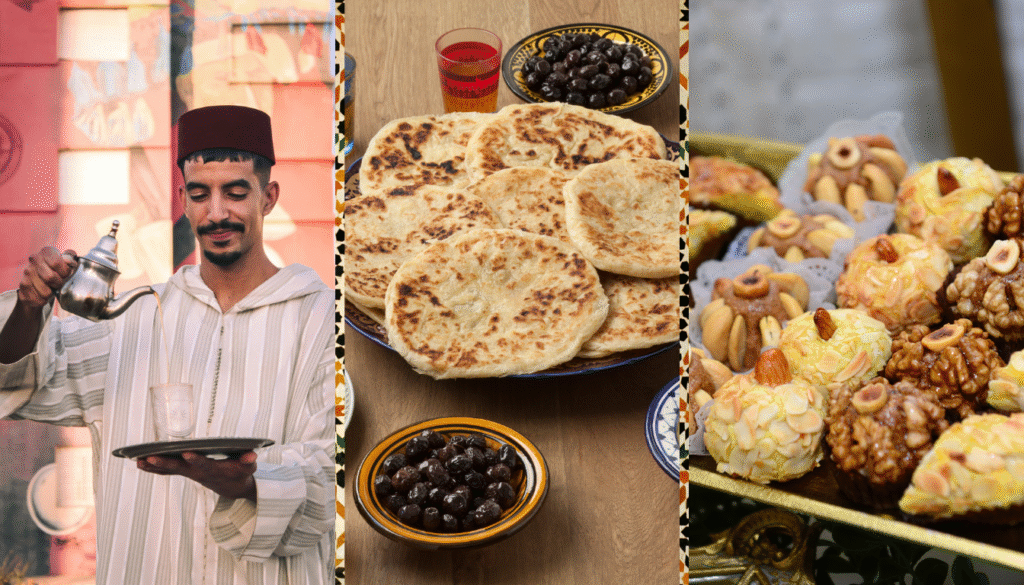
Complimenting Your Host in Culturally Resonant Ways
In Moroccan culture, compliments are welcome. Say “Mabrook” (Blessings) to admire something, like a beautiful home or meal. It shows your respect.
Polite Phrases for Accepting and Declining Offers
When offered food or drink, say “Shukraan” to accept. To decline politely, say “Baraka Allahu lak” (May God bless you). These phrases help you navigate social situations well.
By using these phrases, you can improve your cultural exchange in Morocco. It shows respect and appreciation for local customs and hospitality.
How Traditional Moroccan Hospitality Is Evolving Today
Moroccan hospitality is changing with modern times. When you visit Morocco, you’ll see old traditions mixed with new ideas.
Tourism has changed how people welcome guests in Morocco. It brings in money and lets people share cultures. But, it also worries some about losing the real feel of the place.
Impact of Tourism
Tourism has both good and bad sides for Moroccan hospitality. It helps keep some old ways alive. But, it also makes some experiences feel fake.
| Aspect | Traditional Hospitality | Influence of Tourism |
|---|---|---|
| Cultural Exchange | Deep-rooted customs and traditions | Increased interaction with international visitors |
| Commercialization | Focus on genuine guest experience | Potential for staged or commercialized experiences |
| Preservation | Passed down through generations | Efforts to preserve traditions amidst modernization |
Preserving Traditions
Young people are key in keeping Moroccan traditions alive. They find new ways to make old customs interesting for everyone.
When you experience Moroccan hospitality today, look for real moments. Try a traditional tea or eat with a local family. These are true ways to connect.
How to Bring Elements of Moroccan Hospitality Into Your Home
You can make your home feel like Morocco by adding a few simple touches. Moroccan hospitality is all about being welcoming and generous. These qualities can turn your home into a cozy place where everyone feels connected.
Creating Your Own Moroccan Tea Ceremony
The Moroccan tea ceremony is a big part of their culture. To do it at home, pick good green tea and fresh mint. Use fancy tea glasses and a pretty teapot to make it special.
When you pour the tea, hold the pot up high. This shows you’re generous. It’s all about the ritual and how you present it.
Incorporating Moroccan Hosting Principles in Daily Life
Moroccan hospitality is about making everyone feel at home. Be quick to offer drinks and talk to your guests. Being there for your guests is key.
Designing Spaces That Encourage Connection and Conversation
The way your home is set up matters for how people interact. Try using round tables for better talking. Moroccan colors and patterns can also make your home feel more welcoming.
Recipes and Rituals to Share with Friends and Family
Sharing meals is a big part of Moroccan culture. Try making dishes like tagines or couscous for your family. It’s a way to show love and bring people together.
| Traditional Moroccan Dish | Occasion | Key Ingredients |
|---|---|---|
| Tagine | Special occasions and gatherings | Meat (chicken, beef, or lamb), dried fruits, nuts, spices |
| Couscous | Family dinners and celebrations | Couscous grains, vegetables, meat or fish, broth |
Conclusion: The Transformative Power of Moroccan Warmth
Moroccan hospitality can change your travel experience and make lasting memories. When you experience the warm Moroccan welcome, you’ll see a culture that values connection and community. Visitors become part of the community, even if just for a short time.
From traditional tea ceremonies to delicious meals with hosts, every moment is special. These experiences show the rich heritage of Moroccan hospitality. They leave you with memories that inspire a deeper love for cultural exchange.
If you’re planning a trip to Morocco or want to bring Moroccan hospitality into your life, you’ll learn valuable lessons. These lessons will enrich your relationships and broaden your view.

